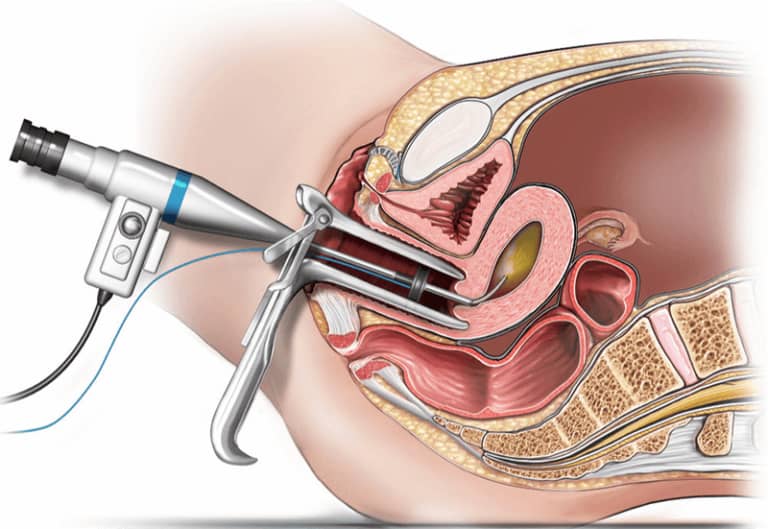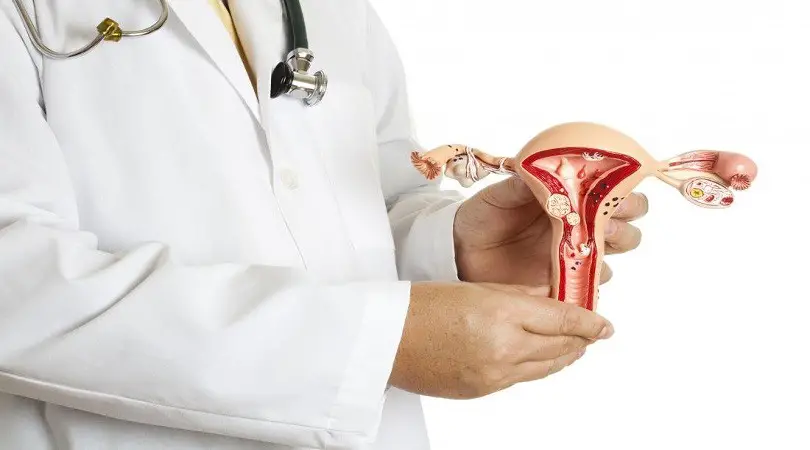Last Updated on January 6, 2025
No, it is not recommended to get pregnant after an ablation. Despite this, it is still possible to get pregnant following the procedure.
Women who have undergone endometrial ablation should consistently use birth control or opt for permanent sterilization. In some cases, pregnancy may still occur though the risk of complications is higher. The procedure can also lead to an increased risk of miscarriage, ectopic pregnancy, and other pregnancy complications. It’s important to discuss any plans for pregnancy with a healthcare provider to determine the best options.

Credit: drmichalamir.com.au
Related: Can You Jump On A Trampoline While Pregnant?
Understanding Ablation
Can you get pregnant after an ablation? This is a common question for women who have undergone this procedure. In this blog post, we’ll explore the topic in more detail and provide you with all the information you need to know.
Understanding ablation is the first step in answering this question.
Definition Of Ablation
Ablation is a medical procedure that is typically used to treat abnormal uterine bleeding. During this procedure, a doctor will use a thin probe to remove the lining of the uterus. Once the lining of the uterus is removed, it cannot grow back, which can be effective in reducing heavy bleeding.
Types Of Ablation
There are several types of ablation procedures available, including:
- Radiofrequency ablation
- Cryoablation
- Microwave ablation
- Thermal ablation
Each type of ablation uses a different method to remove the uterine lining. Your doctor will recommend the best type of ablation based on your individual situation.
How Ablation Works
Ablation works by removing the lining of the uterus, which is where an embryo would typically implant during pregnancy. By removing this lining, ablation makes it more difficult for a fertilized egg to implant, which makes it less likely for a woman to get pregnant naturally.
However, it’s important to note that ablation is not a form of contraception and should not be relied on as a method of birth control.
In addition, while ablation reduces the likelihood of pregnancy, it is not 100% effective. Some women may still become pregnant after undergoing the procedure. If you do become pregnant after an ablation, you will have a higher risk of complications, including miscarriage, preterm delivery, and placenta abnormalities.
Ablation is a procedure used to treat abnormal uterine bleeding. While it does reduce the likelihood of pregnancy, it is not a form of contraception. If you are considering ablation or have already undergone the procedure, it’s important to talk to your doctor about your options for birth control and any potential risks associated with pregnancy.
Related: Can You Take Zicam While Pregnant?
Fertility & Pregnancy After Ablation
Ablation is a minimally invasive procedure used to treat various gynecological conditions, including abnormal menstrual bleeding. During the procedure, the doctor uses heat to destroy the lining of the uterus (endometrium), which leads to a significant reduction in menstrual flow.
After ablation, many women wonder if they can get pregnant and carry the baby to term. In this blog post, we’ll discuss the most important factors that can affect fertility after ablation and answer the question – can you get pregnant after ablation?
Can You Get Pregnant After Ablation?
The answer to this question is not straightforward. The fact is, ablation can significantly reduce the chance of getting pregnant, but it’s not a guarantee of infertility. The procedure does not physically block the fallopian tubes, which means that the sperm can still reach the egg.
However, the chances of implantation are lower due to the changes that occur within the uterus.
The success rate of pregnancy after ablation is low, but there have been cases of successful conception and delivery after ablation. Therefore, if you’re thinking of getting pregnant after the procedure, you should consult your doctor first.
Factors That Can Affect Fertility After Ablation
Ablation can affect your fertility in several ways, and here are the most crucial factors that you need to consider:
- Age: age is one of the most crucial factors that affect fertility, regardless of whether you’ve had an ablation or not. As you get older, your fertility decreases, and your chances of getting pregnant naturally reduce significantly. Therefore, if you’re planning to start a family after ablation, you should be aware that your chances of getting pregnant will decline with each passing year.
- Type of ablation: different types of ablation can affect your chances of getting pregnant differently. For instance, thermal balloon ablation or radiofrequency ablation is more likely to affect fertility than endometrial cryoablation or hydrothermal ablation. Therefore, you should consult your doctor about the type of ablation you had and how it can affect your fertility.
- Severity of ablation: the success of the ablation and the severity of the procedure can also affect your fertility. If the ablation was extensive or resulted in significant scarring, the chances of getting pregnant may be lower. On the other hand, if the procedure was minor, the chances of getting pregnant may still be possible.
- Hormonal imbalance: ablation can cause hormonal changes that affect your menstrual cycle. Some women may have irregular periods or stop having periods altogether after the procedure, which may indicate hormonal imbalance. If your hormones are imbalanced, it can affect your fertility and reduce your chances of getting pregnant.
- Medical history: your medical history can also affect your fertility after ablation. If you have a pre-existing medical condition that affects your reproductive system, such as polycystic ovary syndrome (pcos), endometriosis, or uterine fibroids, it can affect your ability to conceive naturally.
Getting pregnant after ablation is possible, but the chances are significantly reduced. The factors listed above can all affect your fertility after ablation, and you should discuss your options with your doctor if you’re considering starting a family. Remember, the decision should be made based on your unique circumstances, medical history, and personal preferences.
Related: Can You Eat Burrata When Pregnant?
Pregnancy Risks And Complications After Ablation
Can You Get Pregnant After An Ablation?
Ablation is a surgical procedure that destroys the inner lining of the uterus, often used to treat heavy menstrual bleeding. After undergoing this procedure, many women wonder if it is possible to get pregnant. While pregnancy after ablation is rare, it is still a possibility.
However, there are significant risks and complications that women need to consider.
Ectopic Pregnancy After Ablation
One potential risk of pregnancy after ablation is an ectopic pregnancy. This is a serious condition where a fertilized egg implants outside of the uterus, usually in the fallopian tubes. Ectopic pregnancies can lead to severe bleeding and require emergency medical attention.
Pregnancy Complications After Ablation
Pregnancy after ablation can also lead to complications such as bleeding, miscarriage, and premature delivery. The risk of these complications is higher because the uterine lining has been destroyed, making it difficult for the fertilized egg to implant properly. Additionally, the ablation procedure can cause scarring that may increase the risk of placenta previa, a condition where the placenta covers the cervix.
Recommended Precautions For Women Of Childbearing Age After Ablation
If you are of childbearing age and considering ablation, it is essential to discuss the potential risks and complications with your physician. Additionally, it is recommended that you use birth control following the procedure to prevent unintended pregnancy. For women who do become pregnant after ablation, close monitoring by a physician is necessary to identify potential complications early.
Possibility Of Pregnancy After Ablation
While rare, it is possible to become pregnant after ablation. Some women who have undergone this procedure may experience pregnancy symptoms, such as missed periods, but may mistake them for signs of the ablation’s success. However, it is crucial to understand that pregnancy after ablation can be life-threatening and requires prompt medical attention.
Importance Of Consulting A Physician
Women who have undergone ablation should consult with their physician before attempting to get pregnant. Your doctor can help you understand the risks and potential complications associated with pregnancy after ablation. Additionally, they can provide guidance on appropriate birth control methods to help prevent unintended pregnancy.
Pregnancy after ablation is rare, but it is still a possibility. Women who become pregnant after the procedure face significant risks and complications, including ectopic pregnancy, bleeding, and premature delivery. To avoid such risks, women of childbearing age who have undergone an ablation procedure should consult a physician and use appropriate birth control methods.
Remember, carefully considering all possibilities and consulting with the experts can help ensure a healthy and safe pregnancy.
Frequently Asked Questions For Can You Get Pregnant After An Ablation?
Conclusion
Invasive medical procedures such as ablation can significantly affect a woman’s reproductive health. As discussed, becoming pregnant post-ablation is possible but rare, and there is a higher risk of complications such as miscarriage, preterm labor, and other pregnancy-related issues. It is therefore essential for women who have undergone ablation to consult with their healthcare provider before attempting to conceive.
Early monitoring and regular prenatal checkups can help identify and address any potential risks. This blog post aimed to provide an in-depth understanding of the relationship between ablation and fertility and promote awareness about the importance of efficient birth control options.
By making informed decisions and seeking adequate medical advice, women can safeguard their reproductive health and well-being.











